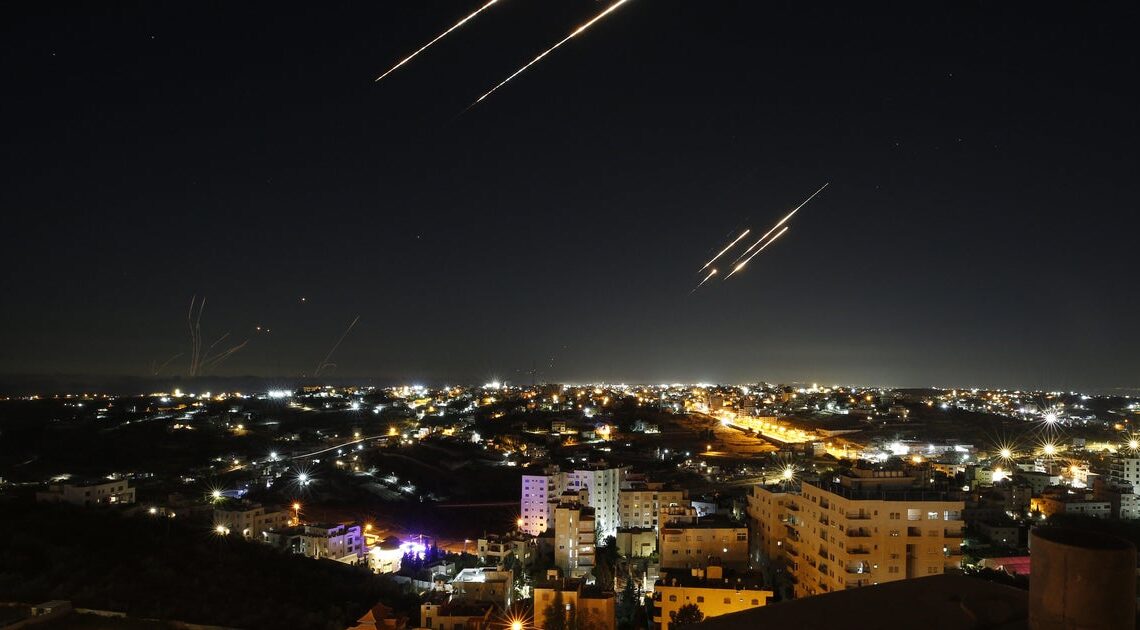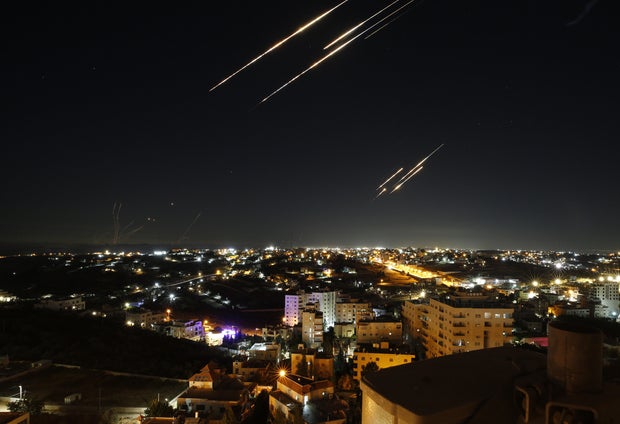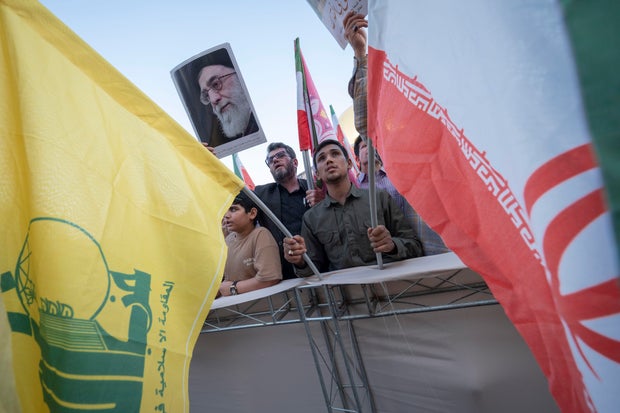
Iran warns U.S. involvement in Israeli strikes would risk “all-out war”
18. June 2025
An Iranian official warned Wednesday that any U.S. intervention in the conflict with Israel would risk “all-out war,” as the unprecedented conflict being waged by warplanes and ballistic missiles entered a sixth day. Overnight, a fresh barrage of Israeli missiles streaked across the skies of Tehran. Most were taken out by Iran‘s air defenses, but the Israeli military and the United Nations’ nuclear watchdog agency said another site linked to Iran’s nuclear program was hit.
Speaking to reporters on Wednesday, Israel Defense Forces spokesman Brigadier General Effie Defrin said the “extensive operation” overnight involved more than 50 fighter jets deployed for three waves of strikes, during which “we struck a centrifuge production site that was intended to enable the regime to continue to enhance its uranium enrichment. This complements actions from previous operations we have conducted targeting components of the nuclear program.”
The U.N.’s International Atomic Energy Agency said in a social media post that it had “information that two centrifuge production facilities in Iran, the TESA Karaj workshop and the Tehran Research Center, were hit,” adding that “both sites were previously under IAEA monitoring and verification as part of the JCPOA” — the international Iran nuclear deal that Mr. Trump withdrew the U.S. from unilaterally during his first term.
Iran retaliated with another wave of missiles launched at Israel by the country’s Islamic Revolutionary Guard. Sirens blared in Israel to warn they were on the way, but the missiles were intercepted, with explosions seen in the skies over Tel Aviv, Jerusalem and the occupied West Bank.
Wisam Hashlamoun/Anadolu/Getty
The steady exchange of fire has taken an escalating cost in human lives. Iranian authorities have provided no updates since saying over the weekend that more than 220 people were killed. The U.S.-based Human Rights Activists in Iran organization, which relies on a network of contacts in the country, said Tuesday that it had documented at least 452 deaths in Iran since Israel launched its attacks, including 109 confirmed military personnel, 224 civilians and 119 people it could not immediately identify.
The war has also sparked an exodus from Iran’s capital Tehran with video showing thousands of vehicles at a near standstill on primary exit routes. Those frantic escape bids were fueled by Mr. Trump’s direct warning to Tehran’s roughly 10 million inhabitants earlier this week to “evacuate immediately.”
While Israel has been able to inflict far greater damage on Iran, it has not been immune to the suffering. At least 24 people have been killed by Iranian missiles that slip through the country’s robust air defenses.
Bella Ashkinaze, 90, and her husband Chaim were asleep in their apartment building near Tel Aviv on Sunday when an Iranian missile smashed into their home. Bella died and was buried this week in an emotional farewell. Her granddaughter Shani Boana told CBS News her grandparents were both too frail to keep going to their bomb shelters every time the sirens blared.
“I wish I could turn back time and to take her to the safe room,” she said. “I am going to miss her a lot… but I still think that we need to do what it takes to stop that threat [from Iran].”
Israel has advised its citizens to remain close to bomb shelters, and the U.S. embassy said it would be closed from Wednesday until at least Saturday.
Iran warns of “all-out war” if U.S. joins Israeli strikes
“I think any American intervention would be a recipe for an all-out war in the region with very, very bad consequences for the whole international community,” Iranian foreign ministry spokesman Esmail Baghaei told Al Jazeera English on Wednesday, adding that he did not believe the Trump administration could dictate to Israel what it could and could not do.
Ali Bahreini, Iran’s ambassador in Geneva and a senior diplomat from the country, said Tehran would “respond strongly” to what he called the ongoing Israeli “aggression,” and he warned that Iran would do the same against the United States if U.S. forces join the conflict.
In an address set to air on Iranian TV later Wednesday, Iran’s supreme leader Ayatollah Khamenei said the U.S. “should know that Iran will not surrender and any U.S. strike will have serious irreparable consequences,” according to the country’s state-run Tasnim news agency.
“Those who know Iran’s history know that Iranians do not answer well to the language of threats,” Khamenei was quoted as saying, as well as accusing Israel of making a “huge mistake,” which he said the country would be “punished for.”
Morteza Nikoubazl/NurPhoto/Getty
The defiant messages came after President Trump issued a stern warning on Tuesday, demanding an “unconditional surrender” by Iran’s clerical rulers. Mr. Trump threatened the country’s supreme leader, Ayatollah Ali Khamenei directly, saying the U.S. knew where he was but that it would not kill him, yet. He added: “Our patience is wearing thin.”
The Trump administration has insisted since Israel launched its first strikes on Iran that the U.S. military is not taking part directly in the attacks. But five sources familiar with the matter told CBS News on Tuesday that Mr. Trump is now considering joining the strikes, including potential attacks on Iran’s secretive Fordo nuclear enrichment facility. The site is buried deep under a mountain, and Israel is thought to need U.S. warplanes to effectively strike the facility.
There’s disagreement among Mr. Trump’s close advisers about taking that action, CBS News’ sources said, but the U.S. military has sent additional warplanes from their home bases to Europe, which analysts believe could be preparation for a greater role in the Mideast.
CBS News’ partner network BBC News said Tuesday that its own analysis of flight tracking data had verified at least 30 American military aircraft flying from bases in the U.S. to Europe over the previous three days – all tanker aircraft used to re-fuel fighter jets and bombers. Data from the Flightradar24 tracking website showed at least seven of the planes – all KC-135 Stratotankers – had stopped at U.S. bases in Spain, Scotland and England.
Justin Bronk, a senior analyst at the Royal United Services Institute (Rusi) think tank in London, told the BBC the deployments were “highly suggestive” of U.S. military contingency plans to “support intensive combat operations” in the Middle East in the days ahead.

